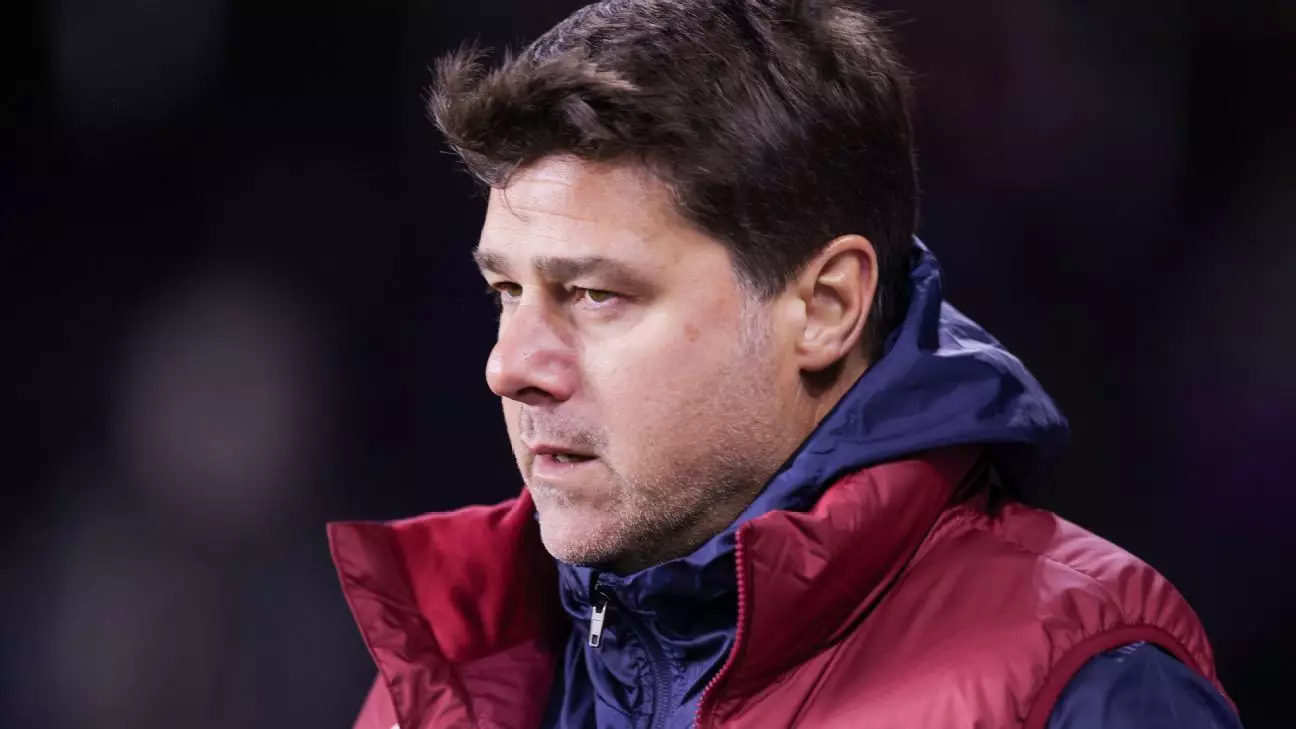Inglewood, California, serves as the backdrop for a much-anticipated match in the Concacaf Nations League, where the U.S. men’s national soccer team, led by manager Mauricio Pochettino, prepares to square off against Panama. The tension is palpable, not just because of the previous encounter where Panama edged out the U.S. in Copa América, but also due to the political ramifications stemming from comments made by President Trump regarding the sovereignty of the Panama Canal. These remarks have injected a heavier undertone into a match that should ideally revolve around athletic competition.
Pochettino, however, displays a remarkable sense of focus, shaping the narrative with a simple assertion: the players need to concentrate on football and not let political issues overshadow their efforts. “We need to defend our flag and our badge,” he says, showcasing a commitment to the sport’s fundamental ethos. This perspective, while laudable, raises questions about the intersection of sports and politics and how much influence geopolitical sentiments can wield on athletic events.
The Coaches’ Stance: Politics Versus Sport
Both coaches, Pochettino and Panama’s Thomas Christiansen, express a shared sentiment—politics should remain outside the stadium. Christiansen emphasizes his disinterest in political discourse, pointing instead to football tactics and strategies. His view illustrates a unique resolution to allow players to shine without the burden of national controversies.
Nevertheless, it is naive to think that cultural backgrounds and political climates have no influence on sports. Soccer, much like any significant cultural phenomenon, is inextricably tied to national identities and the sentiments that come with them. When players take to the pitch, they are not just representing their teams; they embody their nations’ histories, struggles, and triumphs—a reality that’s difficult to overlook, even if Pochettino and others wish it away.
A Call for Unity: Shared Bonds and Rivalries
Interestingly, this event transcends mere competition. Jesse Marsch, the coach of Canada, mirrors his peers’ sentiments on the crowded nexus of sports and politics, arguing for a shift in focus. “We can just focus on the players and the teams and supporting the love of the game,” he says. This call for unity and sportsmanship is a refreshing perspective that speaks to the core of what athletic competitions should entail—honor, respect, and admiration for the game and its players.
Sports often act as a battlefield for larger societal conversations, yet it is in these arenas that we should aim to find common ground. The camaraderie between opposing fans, the excitement of shared victories, and the grace in defeats shed light on the universal joy that sports can bring—creating a sanctuary away from daily discord.
Pochettino’s Perspective: Bridging the Divide
Pochettino’s approach, grounded in personal experience, offers further insight. Having faced tensions stemming from historical conflicts during his years in the UK, he has learned to compartmentalize politics from sport effectively. His assertion that the focus should lie solely on soccer resonates with those who view sports as a means of escape from the complexities of life. “Soccer is about fun for the fans,” he insists, advocating for the joy and celebration that the sport affords its audience.
Yet, one wonders if such compartmentalization is entirely achievable. The rich tapestry of sports is woven with the threads of cultural significance and historical context. Even as players strive to perform at their peak, the very specter of national pride inherently influences their gameplay and fan engagement.
The Legacy of Sport: More Than Just a Game
In the grand scheme of things, while Pochettino and his coaching counterparts argue for a distillation of politics from soccer, their sentiments may inadvertently overlook the unique role the sport plays in shaping national narratives. Soccer can serve as a platform not just for entertainment but as a conversation starter on broader societal themes.
As fans gather in the stands, the clash of jerseys transforms into an expression of identity, pride, and often, reconciliation. The pitch stands as a canvas upon which emotions, aspirations, and rivalries converge—a microcosm of society itself.
The upcoming match against Panama is more than just another entry in the soccer schedule; it’s a key moment for reflection on how sports embody the intertwined nature of politics, identity, and brotherhood among nations. Even as players keep their focus on the game, the implications of their sport ripple far beyond the confines of the stadium, urging both players and fans to navigate the complexities of their shared existence.


Leave a Reply